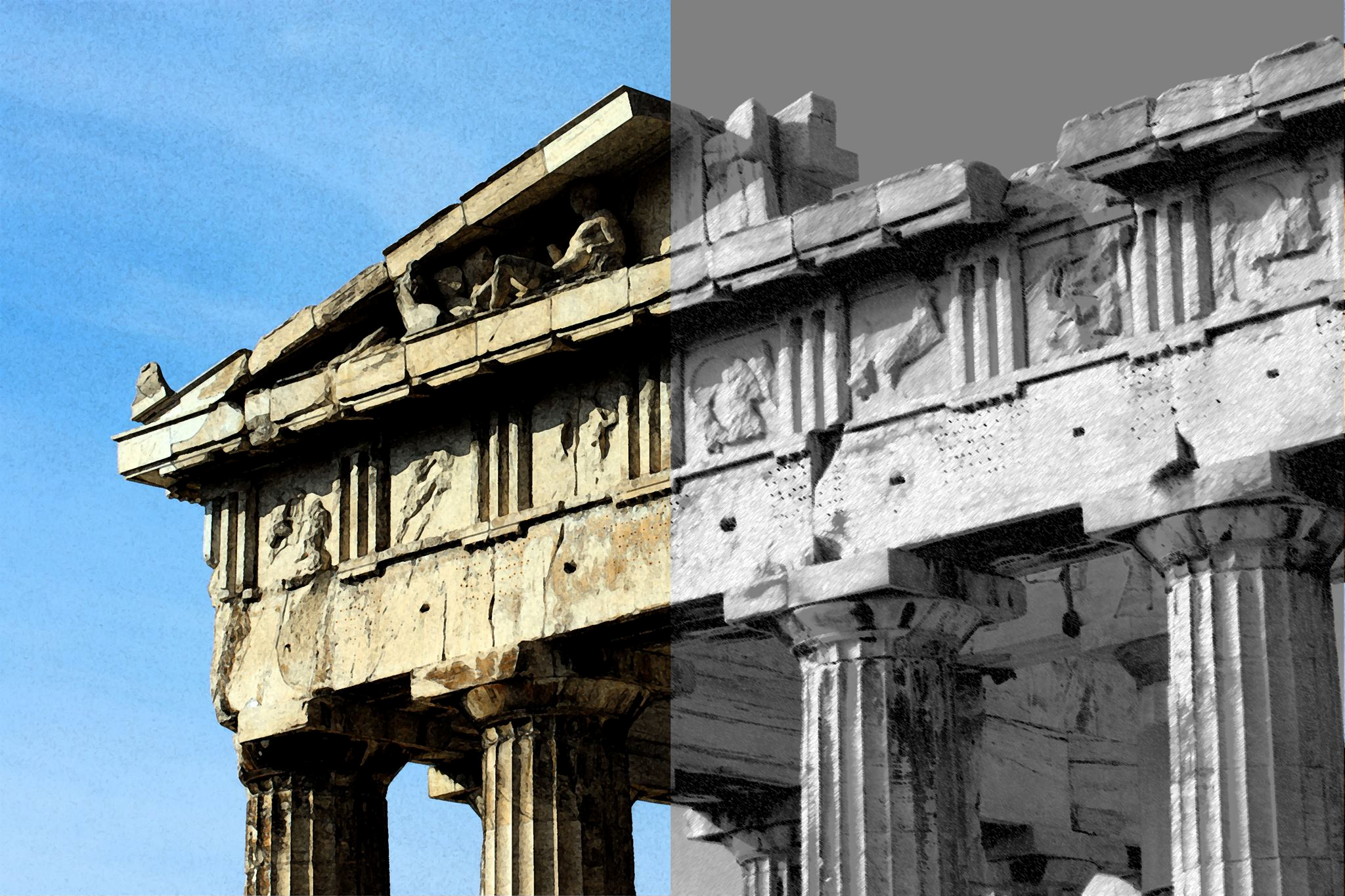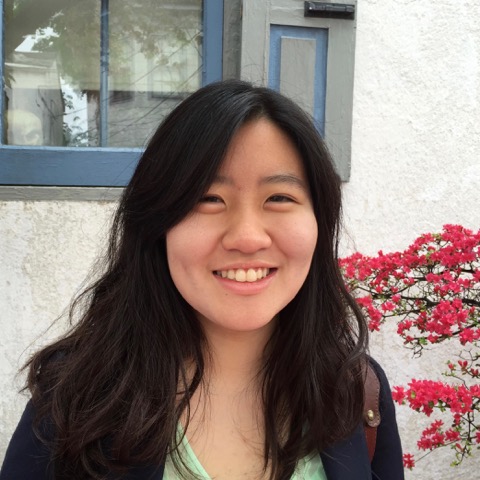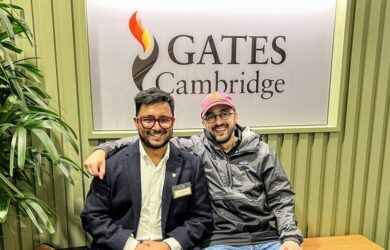
Yung In Chae's research links the ancient and modern worlds through themes such as feminism.
I want to look at how Classics lived in the feminist imagination and how it was used to shape patriarchal structures.
Yung In Chae
The vibrancy of Classics lies in part in how it can be used to rethink modern political issues.
Yung In Chae’s research seeks to link the ancient and modern world to explore themes such as feminism and today’s political currents. To that end she is co-organising a panel debate in May on Classics and political extremism, which will examine recent appeals to the foundational value of classical culture as a source of white, Western ideals, notably in such media as Breitbart, the extremist website Stormfront, and the publications of the far-right party Golden Dawn.
The conference aims to discuss the effects of these changes, which include the appropriation of Classics to justify extremist views on immigration and women; to consider what might be done to address them; and to explore the question of whether professional classicists have been unwittingly facilitating this process by failing to challenge simplistic narratives of cultural heritage.
Yung In’s MPhil focuses on the work of French writer Simone de Beauvoir and her references to the Classics in The Second Sex, one of the key feminist texts. “I want to look at how Classics lived in the feminist imagination and how it was used to shape patriarchal structures,” says Yung In. She is interested in how antiquity is interpreted through the lens of history. “We have to keep redefining what Classics is,” she says.
This is her second master’s. Her first, begun in France and which she will finish after her time at Cambridge, is more historical and investigates how Classics was taught in De Beauvoir’s time and the author’s annotations on The Second Sex. Her Cambridge MPhil is more theoretical, investigating the text itself.
Yung In [2016] combines her research with work as associate editor for an online Classics journal which aims to make the discipline more accessible.
Learning languages
She says she “fell into Classics” after a transnational childhood where learning new languages and confronting new experiences was something she had to embrace.
Born in Seoul, South Korea, Yung In moved to the US when she was three for her parents’ studies and then returned to South Korea aged 10. Although she initially struggled to adjust to language differences in the US, she soon caught up and was admitted to a foreign language high school in Seoul, majoring in English. The programme she was on was for students who wished to go to university abroad – Yung In was determined to return to the US.
When she left school in February 2011, she thought she would study law, having been in debating and mock trial teams at school. However, in the gap between February and starting her degree at Princeton she became more interested in English. One of the first courses she took was Princeton’s Humanities Sequence, an intensive year-long introduction to the Western intellectual tradition. She read authors such as Homer, Dante and Boccaccio and became very interested in Classics. She began learning Latin and was told by her Latin professor that she needed to learn Greek if she wanted to study Classics. So after her first year she did a 10-week intensive course in Greek at City University of New York.
She was then told that to go to graduate school she needed French, German and Italian. Undaunted by the task at hand, she set about acquiring the skills she needed. She spent the next two summers doing a living Latin programme in Rome followed by a similar programme in Greece; and then doing intensive Italian and German courses in Italy and Germany, living with local families.
Making Classics accessible
Having opted to major in Classics after her second year, Yung In graduated in 2015. She applied to L'École des hautes études en sciences sociales in Paris to do a master’s in History and Civilisations investigating the classical references in Simone de Beauvoir’s The Second Sex. Paris was the ideal setting as De Beauvoir had lived there and her notebooks for The Second Sex were archived in the city. She could also research how the Classics were taught in Catholic schools in France which would help her understand how much De Beauvoir would know about them.
There were no scholarships available for the programme so Yung In had to find a job. She found two at the Paideia Institute, a nonprofit organisation for classical study – as a Research Fellow and as associate editor of Eidolon, its online journal for writing about the ancient world in modern ways.
One of the projects she worked on involved tracking PhD Classics students in the US who did not go into academia. Other research included looking at the cognitive benefits of Latin.
Eidolon’s aim is to think about the modern world in the context of the ancient world and to make the Classics more accessible. Topics covered include feminism, race, class and also more fun, personal subjects. Articles are both commissioned and contributed. They do not have to be written by an academic, but are all subject to rigorous fact checking. The most read article is a manifesto for Classics in the age of the alt-right, covering how it is being used to justify Western supremacy.
Yung In, who is at St Catharine's College, is continuing her editing work at Cambridge and is enjoying her time as a Gates Cambridge Scholar. “I am interested in Classics in relation to different disciplines so the Gates Cambridge community is very valuable to me,” she says.
*Picture credit: Eidolon's official image

Yung In Chae
- Alumni
- Korea, Republic of
- 2016 MPhil Classics
- St Catharine's College
Hailing from Seoul, South Korea, I did not encounter the classics until my freshman year at Princeton University, when I enrolled in Latin 101 almost on a whim. The following summer I took a course in Ancient Greek, and thus began an intense affair with languages, as I soon added French, Italian and German to my collection—all of which enhance my work with the classics. As someone with extensive experience in speech and debate, I have an equally strong commitment to political issues. My interests are perhaps best exemplified by my job at the Paideia Institute, a nonprofit organization for classical study, where I am a Research Fellow and edit its online journal for writing about the ancient world in modern ways, Eidolon. I was also a Master's student in History and Civilizations at the École des hautes études en sciences sociales in Paris, France, where I researched Simone de Beauvoir’s classical education. I hope to expand on that project as I pursue an MPhil in Classics at the University of Cambridge, writing a thesis on the classical references in De Beauvoir’s The Second Sex while applying theory—particularly environmental and feminist theory—to the classics in order to gain insight into present-day problems such as the ecological crisis and gender inequality.
Previous Education
Princeton University
École des hautes études en sciences sociales












